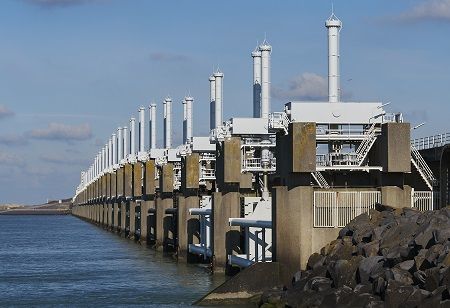
Sony Digital Audio Disc Corporation (Sony DADC), a manufacturer of a wide variety of CDs, had important requirements for a wastewater treatment system as a part of their enlarged production facility in Austria. To make it happen, Sony DADC approached H2O GmbH, a leading provider of vacuum distillation systems. They opted for a VACUDEST vacuum distillation system through which the plant ran automatically and was available around the clock without further support. Taking into account about the wastewater treatment plants market, it is valued at USD 132.6 billion in 2024 and is expected to reach USD 188.6 billion by 2030.
In this modern era, on account of sustainable initiatives, it is essential that industries adopt municipal wastewater treatment plants to protect public health by processing wastewater before it is released into aquatic environments. It is also important to ensure the streamlined operations of treatment plants to meet the growing demands of the public.
These days, heaps of companies are actively working toward certain objectives, and no doubt the amount of water that goes out is very high. The need for municipal wastewater treatment plants is crucial, as their overall process mechanism needs to be effective to safeguard the environment and contribute to a sustainable environment. More importantly, biological treatment processes have to be improvised by activated sludge and trickling filters with the help of process control strategies. It is also required to utilize biological ingredients, which can improve the treatment process and minimize energy consumption. At the same time, embracing advanced methodologies such as anaerobic digestion for sludge treatment and resource recycling can lower disposal costs.
For instance, Veolia Water Technologies uses advanced filtration systems, which are reverse osmosis frameworks, to clear away contaminants from wastewater and also use the latest membranes to segregate waste particles, contributing to the highest-quality treated water.
Sunil Dhole, Founder Director and CEO, Technorbital says "Treating and reusing wastewater in the future will provide industries with many advantages regarding carbon credits, making it a highly appealing and commercially viable practise"
Filtering useful resources is significant in the wastewater treatment process before it is released into waterbodies; it can be nutrients, water itself from sewage, or energy. The filtration process will make the system more efficient in resource recovery and lead to improved efficiency and sustainability. Technologies that have to be implemented in the form of nutrient recovery systems for phosphorus and the removal of nitrogen from sewage can minimize the discharge of nutrients into receiving water and also offer crucial resources for industry-related applications. Other technologies like thermal hydrolysis, anaerobic digestion, and biogas upgrading will aid in recovering energy and mitigating energy expenses, which will pave the way to renewable energy goals.
Suez, a renowned firm in water and waste management solutions, uses the latest nutrient recovery technologies to take out valuable nutrients that can be used again as fertilizers in industrial applications, lowering the need for artificial fertilizers and ending the nutrient loop.
Environmental footprints cause serious concerns across the globe as plant survival becomes more complicated, so it is crucial to regulate the environmental footprint of wastewater treatment plants. This is much needed for sustainable activities. Utilization of energy-efficient technologies and activities has to be performed, such as variable frequency drives (VFDs), blowers and motors, and energy recovery systems, which can lower energy consumption and greenhouse gas emissions. Besides, embracing sustainable initiatives and improving the usage of chemicals can lower chemical waste and impact the environment. Also, putting eco-friendly technologies into practice in the form of renewable energy assists in saving energy and greenhouse gas emissions. The cutting-edge treatment processes will reduce the release of harmful pollutants into nature.
For example, the energy-efficient equipment of Xylem is used in high energy efficiency wastewater treatment plants, which minimizes energy consumption and water treatment emissions.
Strictly adhering to green infrastructure practices is essential, and it helps increase efficiency in waste water treatment plants. Industries associated with treatment plants should make use of natural methods to treat water, bringing down energy and cost. It is significant to add features like vegetated swales and wetlands, which will assist in extracting pollutants and absorbing more nutrients, improving the quality of water while lowering the need for chemical treatments. These days, the contamination of water bodies has become a serious concern, and by adopting green roofs and permeable pavements, it can be brought under control. Eventually, the organic solutions have to be put into practice to enhance treatment effectiveness and biodiversity.
Veolia is a company that integrates rainwater harvesting systems into wastewater treatment plants. This enables the reuse of water for flushing toilets and irrigation purposes, thereby reducing the demand for freshwater resources. Furthermore, on-site rainwater harvesting results in lower levels of stormwater runoff discharged into adjacent water bodies.
All in all, maintaining a clean and sustainable environment is paramount for a greener future. The technologies keep advancing in this era, and industries associated with municipal wastewater treatment plants should ponder the efficiency in the process for sustainable benefits. From the organization's point of view, efficiency has to be preserved by streamlining the regulatory requirements and lowering costs, and it also showcases that the firms are socially responsible. It's not a one-day process to keep things under control and should embrace the comprehensive approach with cutting-edge technologies; optimizing the processes and eco-friendly practices will be solutions to accomplish these objectives, which will pave the way to robust wastewater management systems.
We use cookies to ensure you get the best experience on our website. Read more...